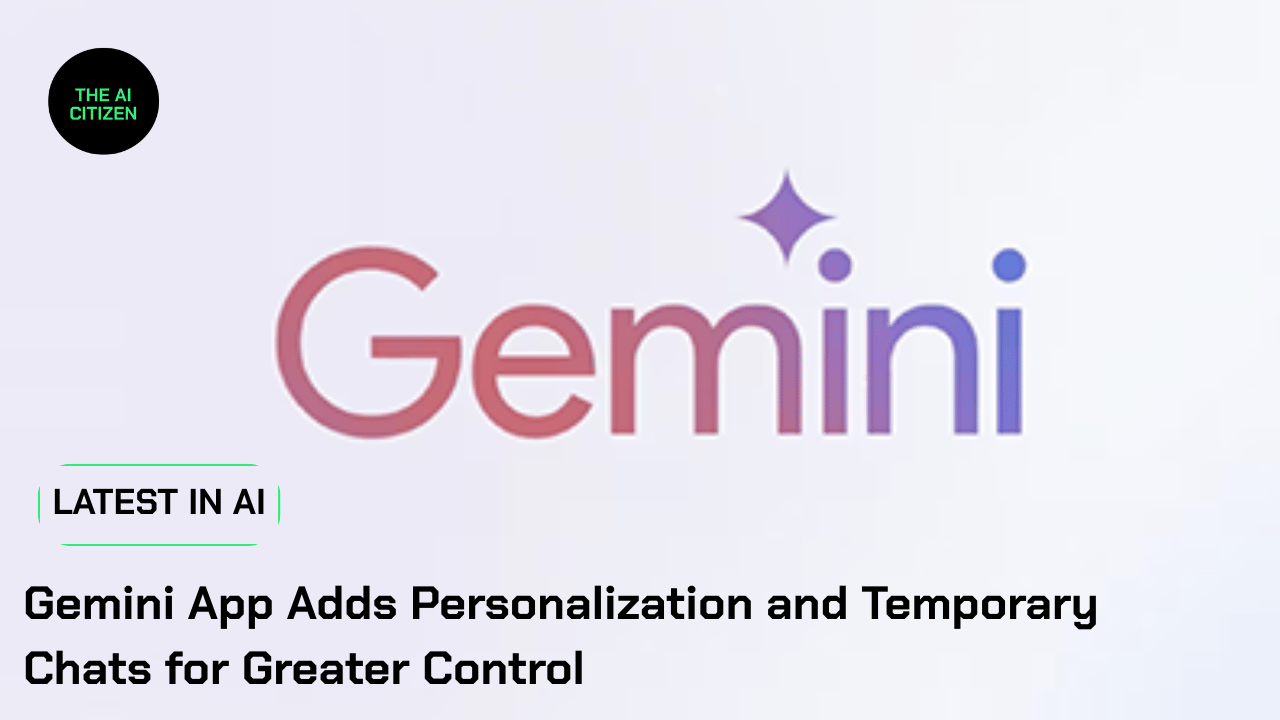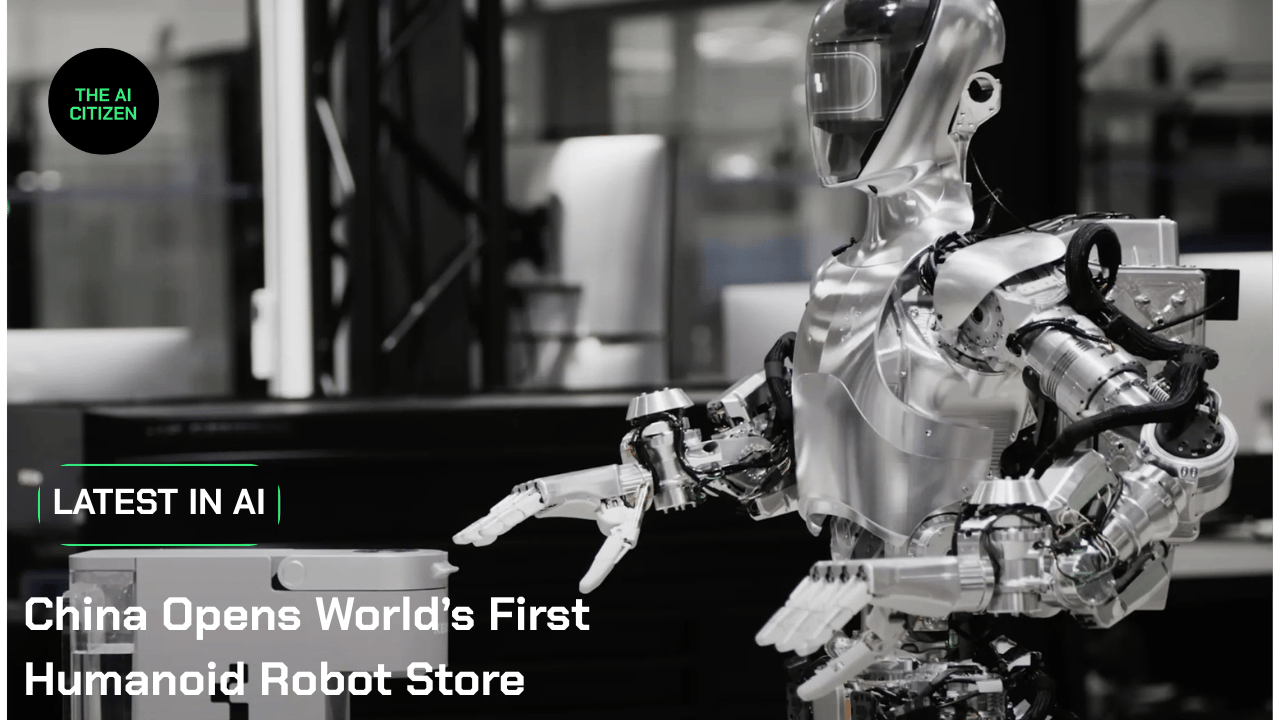- The AI Citizen
- Posts
- Top AI & Tech News (Through August 17th)
Top AI & Tech News (Through August 17th)
🚀 Perplexity Bid | 💼 Microsoft War | 🎥 Multimodal AI

Hello AI Citizens 🤖,
From Meta’s ImageBind, which fuses six senses into a shared AI model, to Google’s Gemini app updates that weave personalization from past chats with new privacy tools, and Anthropic’s Claude Sonnet 4 now handling a staggering 1M tokens of context, we’re seeing the rise of multimodal, memory-rich AI systems. Together, these advances hint at an AI future that doesn’t just process text but learns across sight, sound, motion, and long histories—bringing us closer to assistants and agents that understand context like humans do. For CAIOs, this marks a critical shift: preparing for AI that can reason across formats, remember organizational nuance, and integrate seamlessly into decision-making.
Here are the key headlines shaping the AI & tech landscape:
Perplexity AI Stuns Market With $34.5B Bid for Google’s Chrome
Microsoft Escalates AI Talent War With Meta by Offering Multimillion-Dollar Packages
Anthropic Expands Claude Sonnet 4 to 1M Token Context Window
Gemini App Adds Personalization and Temporary Chats for Greater Control
China Opens World’s First Humanoid Robot Store
Meta’s ImageBind Unifies Six Senses Into One AI Model
Let’s recap!

Perplexity AI Stuns Market With $34.5B Bid for Google’s Chrome
AI startup Perplexity shocked Silicon Valley by making a $34.5 billion all-cash offer for Google’s Chrome browser—more than double its own $14 billion valuation. Chrome, with its 3 billion users, is a strategic gateway to search traffic and AI-powered browsing. Perplexity, already building its own AI-native browser Comet, promised to keep Chromium open source, invest $3 billion, and preserve Google as the default search engine. Analysts doubt Google will sell, but the bid highlights how browsers are becoming central in the AI race as court rulings threaten Google’s search monopoly. Source: Reuters
💡This audacious bid signals the new reality: in the AI era, controlling user gateways like browsers may matter more than search engines themselves. For CAIOs and tech leaders, it’s a reminder that distribution channels—not just models—could decide the next wave of AI power shifts.

Microsoft Escalates AI Talent War With Meta by Offering Multimillion-Dollar Packages
Microsoft has launched an aggressive campaign to poach Meta’s top AI engineers, internal documents reveal. The company has compiled a “most-wanted” list of Meta researchers across divisions like Reality Labs, GenAI Infrastructure, and Meta AI Research, and is rolling out a new fast-track recruiting process. Recruiters now flag “critical AI talent,” triggering executive review and multimillion-dollar offers within 24 hours.
The strategy comes as Meta dangles nine-figure deals, including reported $100M signing bonuses, to lure OpenAI and Anthropic researchers. Microsoft’s own packages, viewed by Business Insider, include salaries of $400K+, on-hire stock worth $1.9M, annual stock awards of $1.5M, and cash bonuses up to 90%. The initiative is spearheaded by Mustafa Suleyman (ex-Google DeepMind) and Jay Parikh (ex-Meta), underscoring Big Tech’s reliance on personal networks to capture scarce AI talent. Source: Business Insider
💡This hiring arms race highlights how AI expertise has become the rarest—and most expensive—commodity in tech. For CAIOs, it signals escalating competition not just for compute, but for human capital capable of building the next wave of frontier systems.

Anthropic Expands Claude Sonnet 4 to 1M Token Context Window
Anthropic has upgraded Claude Sonnet 4 with support for a massive 1 million token context window—a 5x increase that enables processing entire codebases of 75,000+ lines or synthesizing dozens of research papers in one request. The long-context feature is now in public beta on the Anthropic API and Amazon Bedrock, with Google Cloud’s Vertex AI support coming soon. Pricing doubles for prompts over 200K tokens, though features like caching and batch processing can reduce costs by up to 50%.
Early adopters like Bolt.new and iGent AI report transformative results: full-project code generation, multi-day agentic workflows, and production-scale autonomous engineering are now within reach. Anthropic says this leap represents a new paradigm for context-aware AI agents. Source: Anthropic
💡This milestone signals the dawn of true long-memory AI. For CAIOs, million-token context enables next-level enterprise applications—compliance reviews, multi-system code audits, and research synthesis—previously impossible within a single AI session.

Gemini App Adds Personalization and Temporary Chats for Greater Control
Google has rolled out new features to make the Gemini app more personal, proactive, and private. Gemini can now reference your past conversations to deliver more tailored responses—whether recommending books, suggesting creative projects, or brainstorming personalized event ideas. Alongside this, Google introduced Temporary Chats, a mode that allows users to hold one-off conversations that won’t influence future chats or train Gemini’s models, with data retained only for 72 hours.
To reinforce transparency, new privacy settings let users manage how their data—including uploads, audio, and video—is used. The “Gemini Apps Activity” setting is being renamed Keep Activity, with clearer options to opt in or out of data sharing. These updates are available now, starting with Gemini 2.5 Pro in select countries, and will expand in the coming weeks. Source: Google
💡This update shows how personalization and privacy are becoming the dual pillars of next-gen AI assistants. For enterprise leaders, it highlights the direction consumer AI is headed: deeply contextual while giving users the autonomy to set the boundaries.

China Opens World’s First Humanoid Robot Store
Beijing has unveiled “Robot Mall,” the world’s first dedicated humanoid robot retail store, featuring more than 40 brands of androids. The space combines showroom, dealership, and exhibition—letting visitors interact with robots designed for tasks ranging from customer service and education to light industrial work. The sheer variety on display underscores how China’s robotics ecosystem has rapidly expanded beyond a handful of high-profile players like Tesla, Figure AI, and Unitree.
While most Western humanoid robot projects remain in pilot phases, China’s retail leap signals how quickly consumer adoption could follow as costs fall and reliability improves. Analysts suggest dedicated robot stores in the U.S. and Europe could emerge within five to seven years, echoing science-fiction visions from I, Robot to Humans. Source: Robotics & Automation News
💡This milestone shows humanoids edging closer to mainstream consumer tech. For CAIOs and innovation leaders, it’s a cue to watch not just corporate pilots but how cultural appetite and retail models will shape the robot economy.

Meta’s ImageBind Unifies Six Senses Into One AI Model
Meta has introduced ImageBind, the first open-source AI model that learns from six modalities—text, images/video, audio, 3D depth, thermal data, and motion sensors (IMU)—all bound into a single shared representation space. Unlike traditional models trained on paired datasets, ImageBind leverages the natural co-occurrence of images with other data types to align them holistically. This enables cross-modal tasks such as generating images from sounds, retrieving text from thermal data, or animating static photos with audio cues.
Early results show ImageBind outperforms specialist models in audio and depth tasks, while unlocking new zero-shot recognition capabilities. Meta envisions it powering immersive media creation, multimodal search, and even future systems that integrate touch, smell, or brain signals. Source: Meta AI Blog
💡By fusing senses the way humans do, ImageBind pushes AI toward a more holistic understanding of the world. For CAIOs, this opens opportunities in multimodal enterprise search, content moderation, XR, and healthcare diagnostics—where integrating vision, sound, and sensor data could redefine workflows.

Sponsored by World AI X |
Welcoming the CAIO Program July 2025 Cohort! |
We're excited to welcome the Certified Chief AI Officers (CAIOs) July 2025 cohort. The Cohort has been on a transformational journey over the past few weeks and we hope to celebrate their graduation soon. |
Let’s celebrate our amazing CAIOs embracing the AI leadership mindset to shape the future of their industries: |
Yvonne D. (Senior Manager, Ontario Public Service Leadership, Canada) |
If you’d like to be a part of the CAIO Program, now’s the best time to contact us: |
About The AI Citizen Hub - by World AI X
This isn’t just another AI newsletter; it’s an evolving journey into the future. When you subscribe, you're not simply receiving the best weekly dose of AI and tech news, trends, and breakthroughs—you're stepping into a living, breathing entity that grows with every edition. Each week, The AI Citizen evolves, pushing the boundaries of what a newsletter can be, with the ultimate goal of becoming an AI Citizen itself in our visionary World AI Nation.
By subscribing, you’re not just staying informed—you’re joining a movement. Leaders from all sectors are coming together to secure their place in the future. This is your chance to be part of that future, where the next era of leadership and innovation is being shaped.
Join us, and don’t just watch the future unfold—help create it.
For advertising inquiries, feedback, or suggestions, please reach out to us at [email protected].
Reply